I saw the massive line of interns long before I could see the venue. The young crowd waiting outside Broadway Studios in San Francisco on Tuesday chatted with friends and checked their phones, eagerly awaiting to get inside.
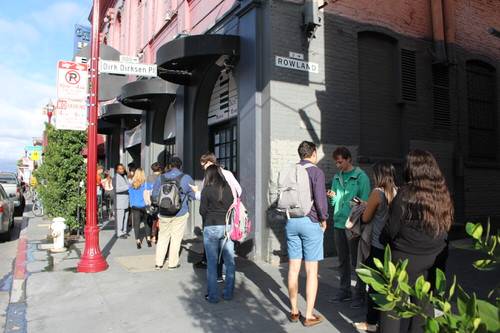
Approximately 2,000 interns from around the Bay Area signed up to attend Internapalooza, an industry-sponsored event for Silicon Valley’s interns to meet each other, chat up potential employers, and hear some of the tech industry’s finest give advice and share experiences from their younger, soul-searching years.
Mike Krieger, co-founder of Instagram, Max Levchin, co-founder of PayPal, and top tech journalist Kara Swisher were among speakers. Overall, the lineup included eight white men, one man of color, and two white women, which spoke volumes about the current state of tech’s not-so-diverse demographics.
Scanning the Internapalooza audience, I was pleasantly surprised at the variety of gender and ethnicity. Examining Silicon Valley’s young generation of interns can tell us a lot about the future of technology and about the new faces of leadership.
While there is a lack of diversity among tech’s current leaders, the Internapalooza attendees suggest just how multifaceted the future of Silicon Valley may be.
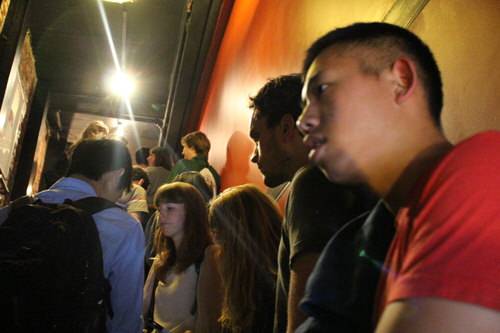
Waiting in line to get into the sold-out event felt worse than waiting in line to get into a club.
Interns stood shoulder-to-shoulder inside the steamy venue. A few wore business casual, but many were decked out in the true tech wear of t-shirts, jeans and backpacks. The aroma of free hot dogs didn’t help the claustrophobia, nor with the nostalgic feeling of filing into college orientation.
Many of the interns in attendance were college students or recent college graduates—50% of attendees were rising seniors at their universities. One hundred attendees were interns at Salesforce, 90 came from Google, 50 interned at Facebook and another 50 at Apple. Close to 200 interns hailed from UC Berkeley, and more than 150 attendees studied either at Harvard, Stanford or MIT.
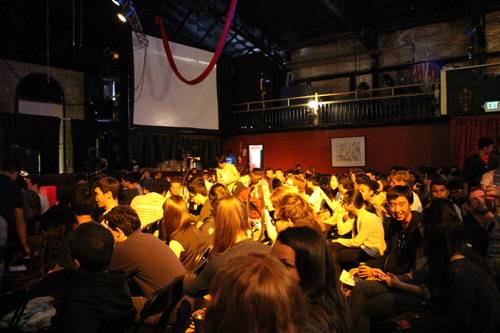
The Silicon Valley culture of interns is unlike the Devil Wears Prada, fetching-coffee type of industry jobs, or the kinds of cheap labor positions that are pervasive within Manhattan and Los Angeles’ media-based internships.
Here in San Francisco’s tech industry, companies actively seek interns as potential full-time employees, and not just semester-by-semester rotations of unpaid staff. It’s a competitive market and the statistics of the attendees at Internapalooza are proof. Over half of the interns in attendence major in computer science, and 80% have studied something related to engineering.
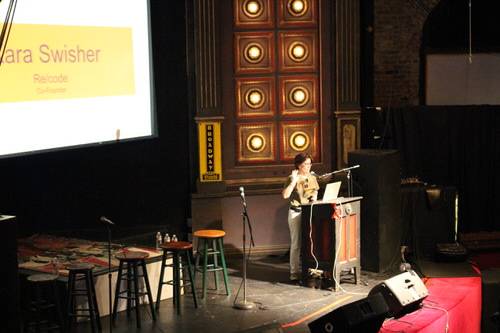
Speakers hit the stage around 7 p.m, giving life advice in an almost believable, I was a kid once too! fashion. Quick words were said about the necessity of figuring out the rest of their lives. These pieces of advice must have seemed daunting and unreachable coming from the leaders who have already made achievements in technology.
For the many interns looking to break into Silicon Valley, their personal stories were a little more raw.
Cori Shearer, Intern at Pandora
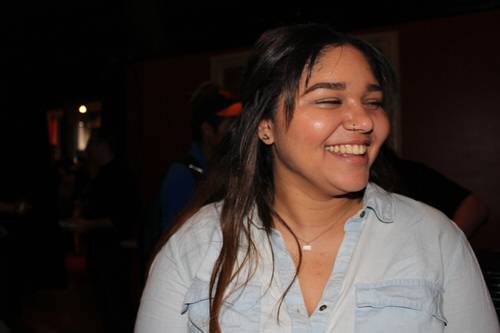
Hearing about Internapalooza from a Bay Area interns group on Facebook, Cori Shearer attended, wanting to be inspired.
“I’m always on the hustle and grind, so sometimes I need events like this to reinvigorate my energy and to remind myself why I’m here in the first place,” says Shearer.
An intern at Pandora, Shearer works in sales technology and on building ad products.
She is also quick to discuss the need for more diversity in tech—noting that many startup’s lack of gender and racial variety occurs when founders look only towards their friends to build their company.
“You need to be in business with people who aren’t like you, and take risks to start your own company. As a female minority, I really want to do something innovative and helpful in the future,” says Shearer.
The Pandora intern hopes to see more people of color on stage at events like Internapalooza.
“Not seeing people on stage that looks like you has an effect because you want to be able to look up to someone,” says Shearer. “This affects future generations, but I am hopeful for change.”
Brian Clanton, Intern at Zynga
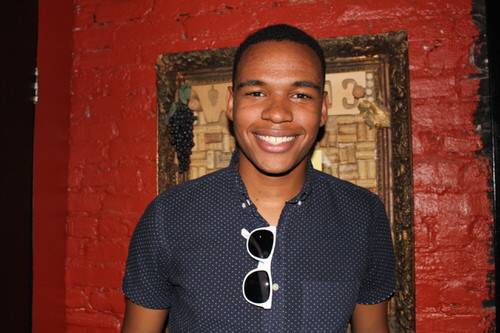
Developer Brian Clanton is a first-time intern at Zynga, and hopes one day to become a development lead.
Clanton says he finds it difficult to set himself apart from other interns in Silicon Valley’s ultra-competitive race towards tech employment. This feeling is made all too real while standing amongst the hundreds of interns gathered in the venue.
“In order to set myself apart I need to do well in school, gain lots of work experience, and just work on different projects,” says Clanton.
We awkwardly shuffle amongst groups of interns and gawk at the sheer number of people in attendance. I ask him about the fanaticism surrounding Silicon Valley. What makes the tech industry such an appealing place to work?
“Kids want to work in Silicon Valley because there’s an image projected out there that it’s a lot of fun, and that all of these companies have great working environments. They have hammocks! It appeals to a younger generation,” says Clanton.
Meron Foster, Intern at Captûre Wines
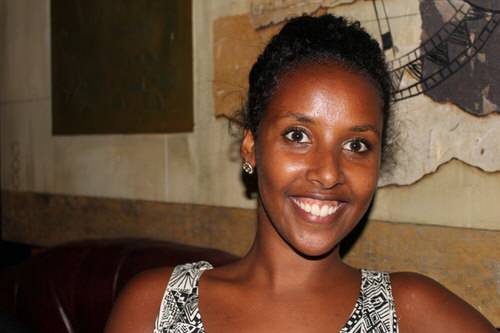
Meron Foster says that she wants to pursue technology because that’s where the future lies. An intern at Captûre Wines, Foster works in sales and events, but not being a technically-inclined person often leaves her feeling left out of the tech bubble.
“It’s tough to find jobs in Silicon Valley. It’s a tight-knit circle, and if you’re not ‘a techie’, it’s intimidating to break into that culture. But I’m good at sales and marketing. It’s just hard to portray that to the tech industry without any tech skills,” says Foster.
Like Shearer, Foster wants to see more people of color working in tech. Although the hundreds of interns at Internapalooza are diverse in gender and ethnicity, the leaders of tech companies often are not.
“Events like this have a lot of young people of color here. Tech has lots of folks of Asian descent, but that’s still a specific color that tech indulges in. This will change with time. There are so many different people, and tech is not closed off to us,” says Foster.
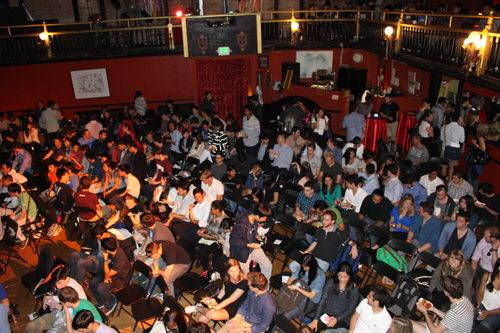
As I leave the venue, the doorman tells me more than 60 interns who could not initially enter waited throughout the night to get inside. With such overwhelming interest, the tech industry is clearly not hurting for qualified candidates. The draw of Silicon Valley for these interns may be as superficial as hammocks and nap pods, or perhaps it’s the in desire for inclusion and for more diverse representation.
The students at Internapalooza overall were intelligent, driven, and hopeful for positive change. We are in good hands.

















